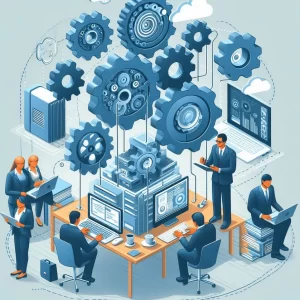Tech’s $1 Billion Unicorns Eclipsed by Centaurs
The obsession does have downsides. The race to burn cash and mature at all expenses produced dropping dollars almost fashionable — think WeWork Inc. Only 22% of 2020’s technological innovation original general public presenting had earnings. As for tech’s dilemma-fixing likely, there seem to be a great deal far more electronic butlers and crypto apps in the venture-cash forest than vaccine makers.
It’s perhaps welcome, then, that the unicorn-buzz bubble is meeting its match: the conclude of low-priced dollars in a put up-pandemic, war-torn environment. Like the money equivalent of a blizzard, tumbling inventory markets and climbing interest rates have venture capitalists heading for shelter. European VC funding has fallen 50% among the 1st and 2nd quarter of this 12 months, to $6.1 billion, according to GPBullhound. Reduced development and less optimism mean startups that could the moment depend on a Tiger World wide to aggressively again nosebleed valuations are becoming instructed to cut prices and preserve funds. A lot more than 21,000 US tech personnel have been laid off this 12 months, according to Crunchbase.
There’s continue to a reasonable total of extensive-expression optimism. Martin Mignot of Index Ventures notes that tech has survived past downturns like the dotcom bust and the financial crisis. But with anticipations of a funding winter lasting 18 to 24 months, startups’ capacity to produce money is starting to be paramount. “There will be a flight to top quality,” suggests Mignot.
Perhaps it is time to hunt a new animal more in tune with the occasions: the centaur. Outlined as a startup with $100 million in once-a-year recurring profits — a prevalent metric in cloud-based mostly expert services — it’s being held up as the new anti-unicorn by Bessemer Venture Partners. There are only 150 centaurs throughout the world in the cloud marketplace. But with additional spending buyers, far more employees and a additional proven item-current market healthy, they’re much less probable to vanish to zero when the founder’s charisma fades.
What ever the buzzword, the underlying substances of this shift look much healthier than what we have been fed in the earlier. Startups have been taught to check out funding like a tray of cocktail sausages at a celebration: The waiter might under no circumstances arrive back, so grab as substantially as you can. Abundant money fed unicorns’ “blitzscaling” pattern of burning funds to knock out the competitiveness and justify their have lofty valuations. That will be tougher to attain in today’s globe, and perhaps which is just as nicely if it sales opportunities to fewer corporations dependent on outdoors funds to plug losses.
For client-targeted corporations, boosting rates immediately after many years of chasing growth isn’t likely to be so easy in a time of superior inflation, as Netflix Inc. or meals-shipping and delivery startup Gorillas has uncovered. The cost of getting buyers appears to be to have develop into unsustainable in some sectors, suggests Partech’s Reza Malekzadeh. Business versions that mask the “true” value of acquiring anyone to deliver avocado toast to your home will be rarer, and that can only be a great point.
If we want to think optimistically, we could argue that world-transforming tech might thrive in a world considerably less obsessed with unicorns — or the minotaurs like Lyft or DoorDash that have lifted an astonishing $1 billion. Silicon Valley veteran Tim O’Reilly has described why: It is much easier for fortunate individuals to appear like geniuses when everything’s going up, and also less complicated to create a monster like Theranos through a hype bubble. When Intel went public in 1971, it was worth $375 million at today’s costs and experienced yearly revenue of about $70 million, with a modest revenue. How several of the 2020 crop of unprofitable tech IPOs, with considerably bigger valuations than Intel’s, will have a related impression?
Sure, there’s something a little hokey about shifting the bestiary to suit the moments. Even centaurs won’t be immune to a economic downturn, especially if their very own shoppers are fragile unicorns. And if there is just one species that not often variations its stripes, it’s VC buyers: They will always be seeking for residence-run 10x startups that offset the bulk of bets that either fall short or do all right. For this reason Marc Andreessen’s evangelizing of web3, which looks really centaur-totally free.
But in a environment of huge problems, from local weather alter to pandemics to artificial intelligence, it could possibly not be so negative to see a fundraising startup greeted with grumbling more about revenue than valuations. Soon after all, Loudcloud alone survived the dotcom bust, and — right after becoming renamed OpsWare and nearing $100 million in earnings — was obtained by Hewlett-Packard for $1.6 billion in 2007. If unicorns just cannot adapt to a chilly current market, extinction beckons.
A lot more From Bloomberg Feeling:
• Tiger World-wide and the Perils of Crossover Hedge Funds: Shuli Ren
• SoftBank’s Son Has Survived Larger Disasters: Gearoid Reidy
• When Tech Unicorns Start to Look Like Ponies: Lionel Laurent
This column does not essentially mirror the feeling of the editorial board or Bloomberg LP and its homeowners.
Lionel Laurent is a Bloomberg Impression columnist covering electronic currencies, the European Union and France. Previously, he was a reporter for Reuters and Forbes.
Far more stories like this are available on bloomberg.com/viewpoint





